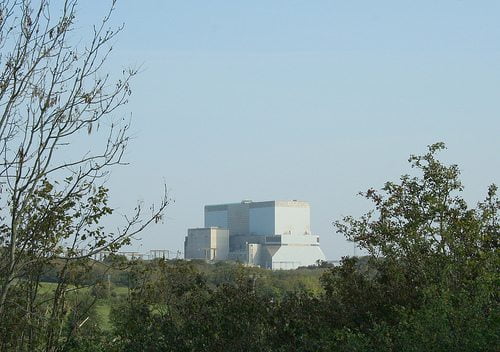

Economy
European Commission approves subsidy plan for Hinkley Point C nuclear reactors
The European Commission has approved the subsidy scheme proposed to build the UK’s first new nuclear reactors in 20 years at Hinkley Point in Somerset, on the condition that the burden on British taxpayers is reduced.
Blue & Green Tomorrow is currently running a crowdfunder to ensure its survival. Please pledge.
The European Commission (EC) announced earlier that it would investigate the project to ensure that the UK had complied with state aid and EU competition laws.
EDF’s £16 billion plan has been scrutinised and was approved by regulators albeit with some amendments, which have been agreed with the UK, to cut the subsidy scheme of more than £1 billion.
Joaquín Almunia, the EC’s vice-president in charge of competition policy said, “After the commission’s intervention, the UK measures in favour of Hinkley Point nuclear power station have been significantly modified, limiting any distortions of competition in the single market.
“These modifications will also achieve significant savings for UK taxpayers. On this basis and after a thorough investigation, the Commission can now conclude that the support is compatible with EU state aid rules.”
EDF would have guaranteed £92.50 per megawatt hour over the 35-year lifetime of the plant. This is twice the current price of electricity and would have been paid out of consumers’ energy bills.
Commenting on the decision, John Cridland, CBI director-general, said, “The European Commission’s green light for Hinkley Point is a significant milestone in the United Kingdom’s energy future.
“Hinkley should set the ball rolling for the UK’s nuclear new build programme, putting us on the right path to achieving a secure and sustainable energy mix.”
But the news was met with criticism by environmental campaigners. Allan Jeffrey, spokesperson for the Stop Hinkley Campaign said, “This deal is clearly illegal under European law; it will saddle UK consumers with the bill for paying huge subsidies for decades, and yet there are more cost effective and safer ways of providing low carbon electricity or not using the energy in the first place.
“It is mind boggling how the UK government managed to convince the Commissioners to go along with this crazy plan without even the pretence of a competitive process.”
Among the member states that opposed the decision, anti-nuclear Austria declared a plan to take the commission to the European Court of Justice over the ruling.
Photo: Campaign for Nuclear Disarmament via Flickr
Further reading:
Government ‘examining possibility’ of building 50 nuclear power plants
Nuclear power from Hinkley C may be ‘too expensive’
New Hinkley nuclear plant to be scrutinised by EU commission
Climate scientists: nuclear power vital in climate change fight
Industry could build solar equivalent of Hinkley in two years, firm tells PM


 Environment12 months ago
Environment12 months agoAre Polymer Banknotes: an Eco-Friendly Trend or a Groundswell?

 Features11 months ago
Features11 months agoEco-Friendly Cryptocurrencies: Sustainable Investment Choices

 Features12 months ago
Features12 months agoEco-Friendly Crypto Traders Must Find the Right Exchange

 Energy11 months ago
Energy11 months agoThe Growing Role of Solar Panels in Ireland’s Energy Future






























